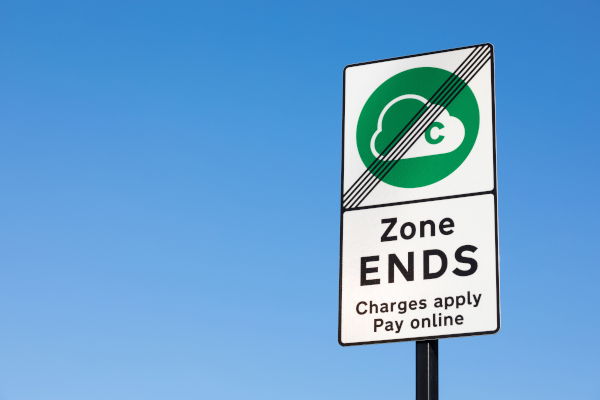Legal Requirements When Running a Used Car Dealership in the UK
If you are a car dealer in the UK, there are various legal requirements you must adhere to in order to ensure compliance and protect consumer rights.

Business Registration, Licensing & Insurance
You will need to register your business with Companies House if you’re operating as a limited company.
If you want to drive unregistered or untaxed vehicles on public roads, you will need to use Trade Plates which are issued by the DVLA and save dealers from having to tax each vehicle individually while in stock.
It is mandatory to cover any vehicles in your possession, whether for sale, test drives or repairs with Motor Trade Insurance. Without it you can not keep vehicles on your premises unless you declare them to be off-road by obtaining a SORN from the DVLA.
You must also have Insurance Coverage For Test Drives - this will protect both your business and your customer.
Consumer Rights and Vehicle Standards
You must ensure that all the vehicles you sell are of satisfactory quality, fit for purpose and as described, to be in accordance with the Consumer Rights Act 2015.
Under the Consumer Contracts Regulations 2013, customers have the right to a 14-day cooling off period for distance sales.
If a vehicle is unroadworthy, you must explicitly state this and make it clear that the vehicle is being sold for repair or for parts.
Financial Conduct Authority (FCA) Authorisation
If you either offer finance options, or introduce customers to third-party finance providers, you may need FCA authorisation. You will need to check which specific permissions are required of you. You can find out more information on the FCA website at: https://www.fca.org.uk/firms/authorisation/consumer-credit-brokers/motor-dealers
To be on the safe-side, you shouldn’t even mention finance without being FCA authorised.
Value Added Tax & VAT Margin Scheme
If your taxable turnover exceeds the threshold set by HMRC. At the time of writing, February 2025, this is set at £90,000. This means that if your business's taxable turnover exceeds £90,000 in the past 12 months, or if you anticipate it will exceed this amount in the next 30 days, you are required to register for VAT.
If you are selling second-hand goods, you can use the VAT margin scheme which will allow you to pay VAT on the difference between the purchase and selling price of a vehicle. There are a number of requirements associated with the VAT Margin Scheme, such as keeping detailed records and clearly marking participating vehicles on your invoices, all of which you can see in detail in our blog about the VAT Margin Scheme.
To keep in line with HMRC compliance when it comes to ,arginal VAT, it’s important to maintain a stock book for used car sales.
Invoice Requirements
You are required by law to ensure that your invoices include the following information:
- A unique invoice number.
- Your business name, address and contact information - if you are a limited company you must show your registered office address.
- Your customer’s name and address.
- A clear description of the vehicle that you are selling. This includes the make, model and VIN.
- The date of the sale.
- The sale price, including a breakdown of VAT when applicable. When using the VAT margin scheme, ensure that this is marked clearly on the invoice.
- Terms of sale, including your warranty or return policies.
Data Protection
You must comply with GDPR safeguarding regulations to protect the personal information of your customers - known in the UK as the Data Protection Act 2018. Steps car dealerships must take to ensure GDPR compliance are as follows:
- You must obtain customer consent when it comes to how their personal data is used (i.e name, address, financial details) for marketing purposes. This even applies to something as seemingly innocent as an MOT reminder.
- You must secure customer data properly, taking necessary cyber security measures such as encryption, secure storage and access controls. It’s important to protect your customers from security breaches.
- You must allow customers to access their personal data upon request and delete it if they ask you to do so. The only exception would be if legal obligations require you to retain it.
- Only collect and store the minimum necessary personal data required for sales, financing or aftercare services. You must make sure this data is not used for any unrelated purposes.
- GDPR regulations require you to detect, report and respond to data breaches within 72 hours of the event. Put in place measures to help you with these.
If you are handling customer's personal data you will also need to register with the ICO (Information Commissioner's Office) as a Data Controller.
Advertising Standards
You must ensure that all your advertising is truthful. Misleading advertising can be in breach of guidelines set by the Advertising Standards Authority.
Record Keeping
Your dealership must maintain detailed records of all transactions, which includes purchase and sale agreements. These records are needed for potential audits and to comply with tax obligations.
Health and Safety
The site where your employees work, and where your customers may visit you must comply with the Health & Safety at Work Act 1974. You must ensure safe working conditions, risk assessments, and the proper storage of hazardous materials such as oil and fuel.
Environmental Regulations
Your dealership must ensure that any waste considered hazardous, such as old tyres, car batteries and oil, must be disposed of according to the Environmental Agency Regulations. When transporting hazardous waste, you may need a Waste Carrier Licence.
If you are scrapping vehicles, you must use an Authorised Treatment Facility and comply with End-of-Life Vehicle Regulations.
Anti-Money Laundering (AML) Regulations
If your dealership handles any high-value cash transactions you must comply with Money Laundering Regulations. The threshold for this at the time of writing (Feb 2025) is €10,000 Euros, according to the UK Government website. If you handle card transactions above this amount, you must verify customer identities and report suspicious transactions to HMRC.
Conclusion
We do understand that the legal requirements can be overwhelming and even daunting at times. That is why MotorDesk contains features to help you keep on top of these requirements. From the automatic stock book maintenance to automatic Marginal VAT calculations, presented properly on invoices, MotorDesk does all it can to help you navigate this potential minefield.
Do you feel that MotorDesk could be the right solution for the management of your own dealership’s inventory? If so, please don’t hesitate to click through to start your free trial.



